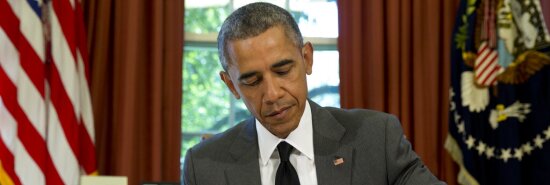
More regulation yields more profits for large firms while crushing small ones: Study
Timothy P. Carney
Video Embed
The economy of the United States has become more consolidated and more regulated over the past generation, and it turns out that regulation is a leading cause of the consolidation.
So if you ever wonder why Big Business is lobbying for bigger government, just check out this paper from finance scholar Shikhar Singla.
WHAT THE GOP WORK REQUIREMENT PROPOSAL WOULD REALLY DO
His study finds “an increase in regulatory costs results in lower sales, employment, markups, and profitability for small firms,” but more importantly, they find that greater regulatory costs result in higher sales, employment, markups, and profitability for large firms.
That is, Big Government is good for Big Business.
Singla used “machine learning” technology to force computers to read every single U.S. regulatory filing since 1970 that laid out the costs the regulation imposed on businesses. He found that “regulatory costs have increased by $1 trillion from 1970 to 2018.” That’s a lot of money. So how have those massively increased costs affected businesses?
The federal filings were pretty granular and could show how much regulatory costs increased in each industry. So Singla compared big and small businesses in the affected industry.
The big finding: “We find that increase in regulatory costs leads to small firms becoming smaller and large firms becoming larger. It also leads to an increase in markups and profitability of very large firms.”
That second part is key here and bears repeating:
Increasing regulatory costs increases profits and markups for large firms. That both explains why Big Business regularly calls for more regulation (see the artificial intelligence industry for this week’s example), and it points toward the harm of these regulations. The increased Big Business margins come from decreased competition, which in turn harms consumers and workers.
For a crystal-clear real-world example of this, go back to 2010 when H&R Block and Jackson Hewitt supported the Obama administration’s (illegal) attempt to regulate tax preparers, requiring lengthy and costly certification for paid preparers.
“We support this IRS initiative to improve and increase compliance standards, requirements, and expectations for the individual income tax return preparer community,” Sheila Cort of Jackson Hewitt said.
At the time, UBS issued an investment alert, effectively saying that these regulations made H&R Block a better bet: “The new regulations should help Block by: 1) reducing fraudulent preparers (that generate oversize refunds dishonestly), 2) add barriers to entry (or continuation) for small preparers, 3) provide revenue as Block may sell their continuing education and competency tests to others, and 4) perhaps boost paid prepared share.”
What’s more, Big Government is a home game for Big Business. Do you know who was the IRS commissioner when the IRS wrote its rules? Mark Ernst, who a few months before had been the CEO of H&R Block.
The big guys hire the best lobbyists and lawyers to navigate and tweak the rules — often these lobbyists and lawyers were the lawmakers and bureaucrats who wrote the law and the regulations.
Big Business lobbies for and profits from Big Government.
